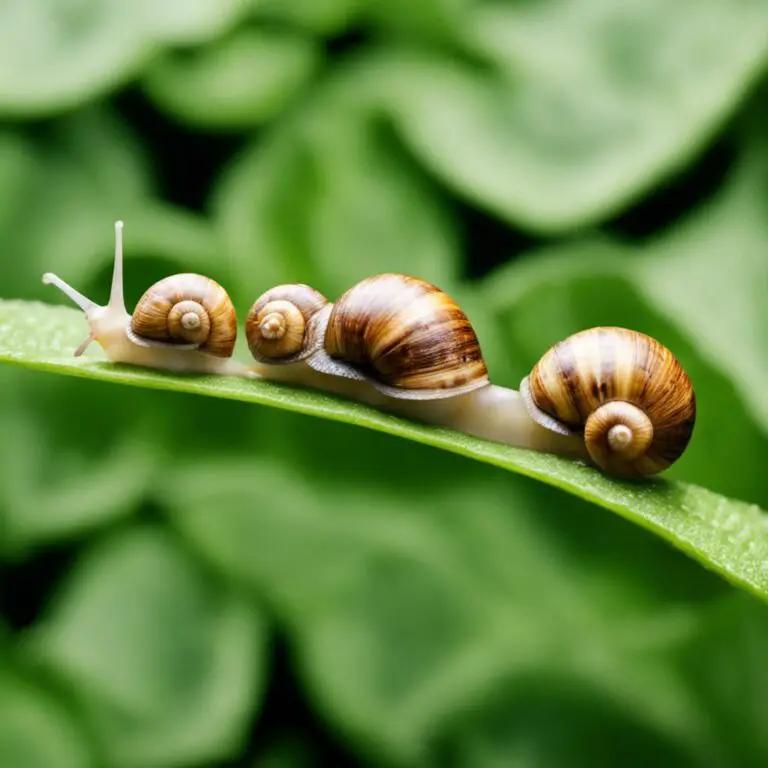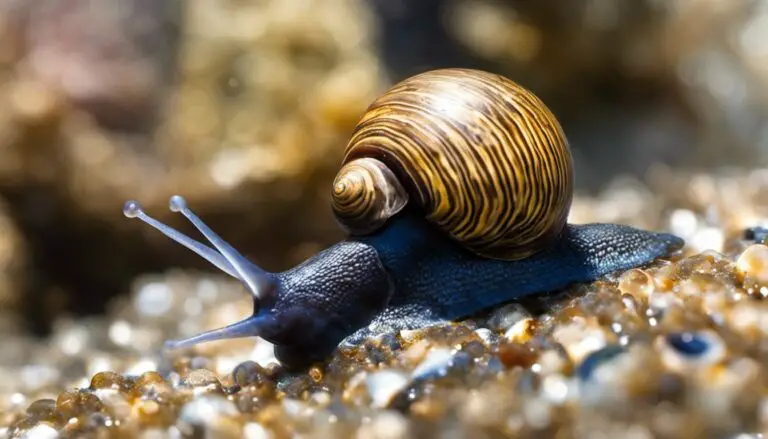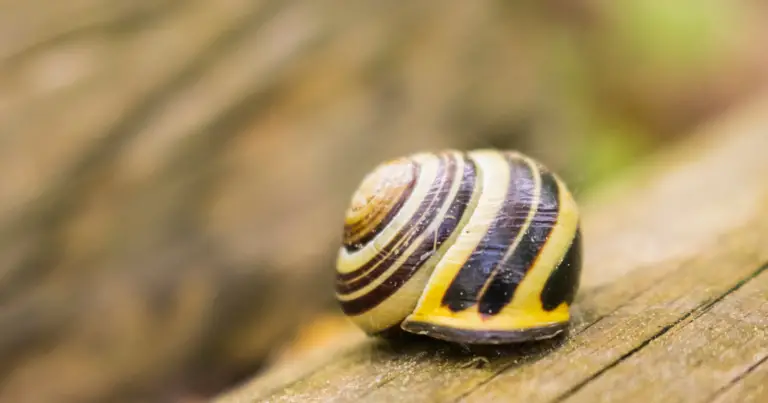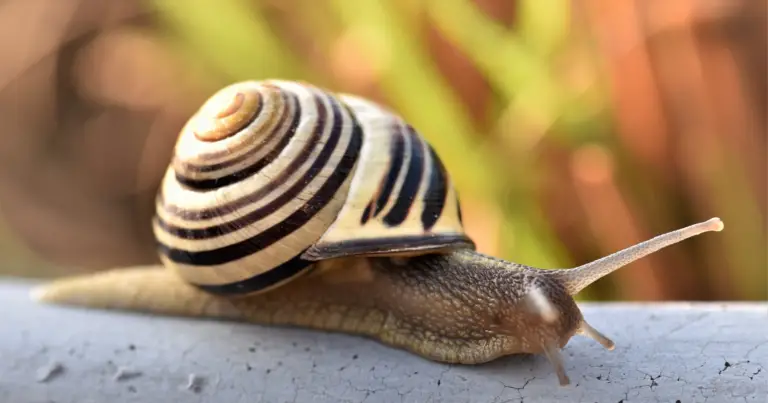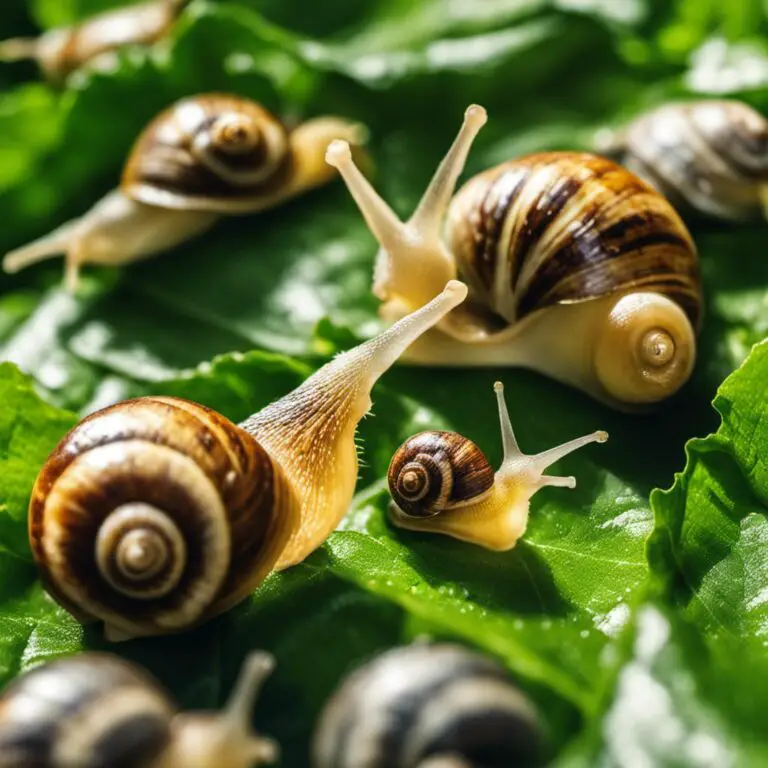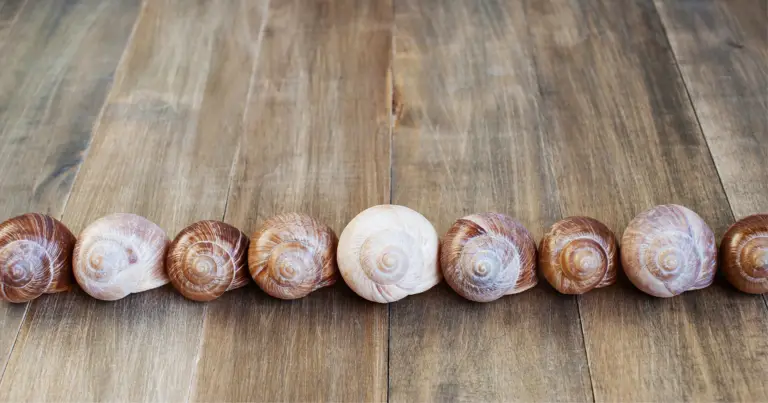Do Chickens Eat Snails? A Comprehensive Guide
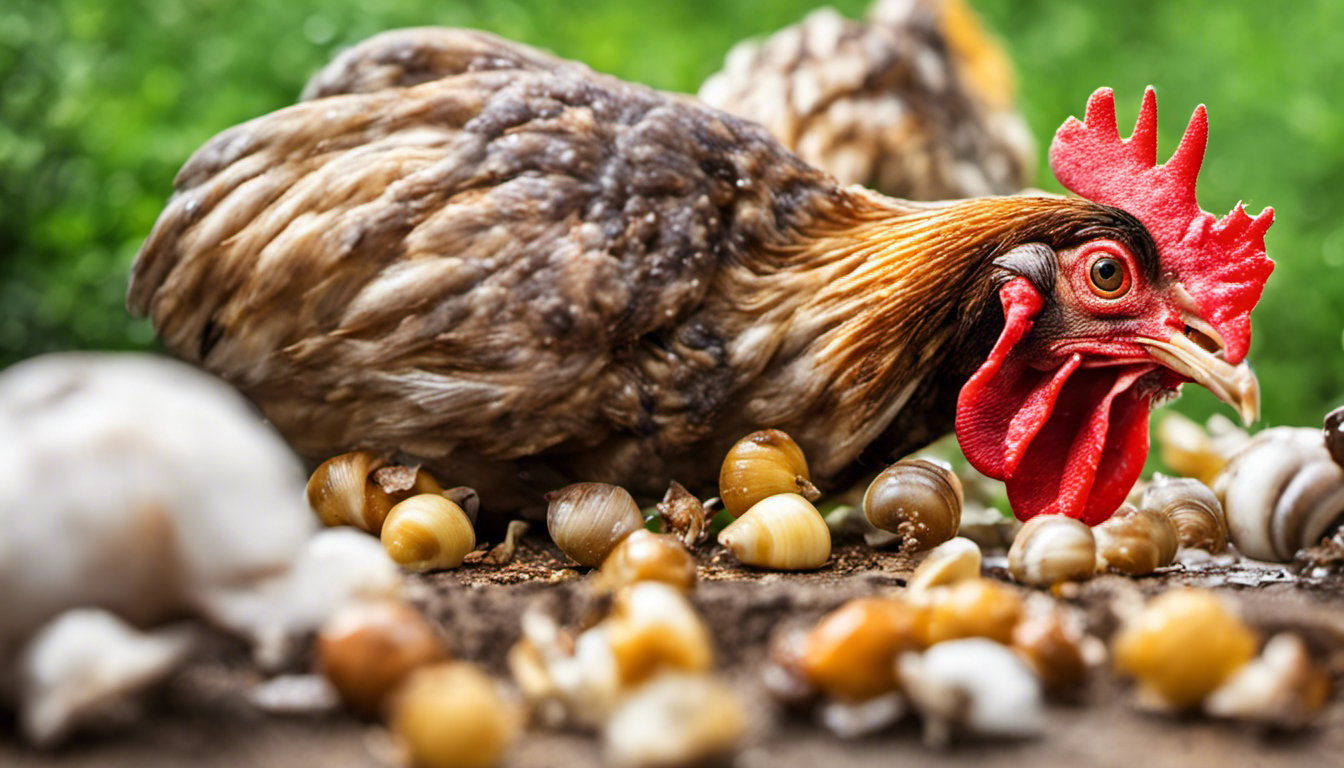
Chickens are known to have a diverse diet, often eating various insects and garden pests. One common question that arises is, “Do Chickens Eat Snails?” and if it’s safe for them. Fear not, as this article will explore this topic and provide you with valuable information on the matter.
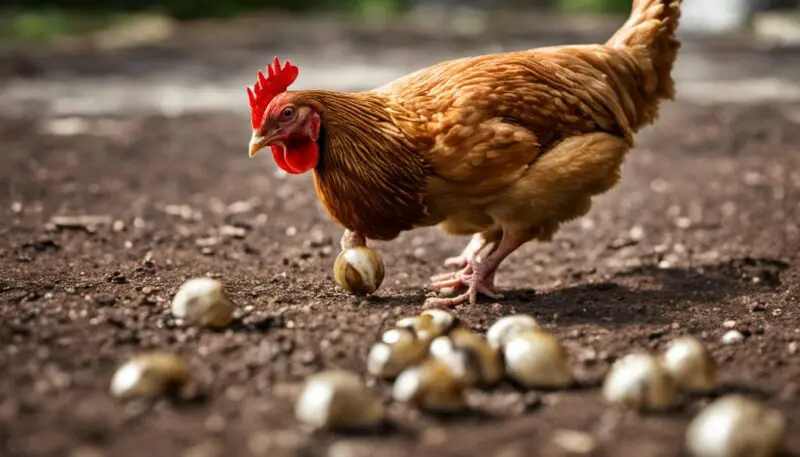
It turns out that, yes, chickens do eat snails. In fact, snails can be a beneficial addition to their diet as they are rich in protein and other nutrients that are important for their overall well-being. Moreover, snails are generally safe for chickens to consume, thanks to the absence of harmful substances that could harm their health.
However, there are certain aspects to consider regarding chickens consuming snails. For instance, potential risks and the impact of pest control methods on your flock. This article will delve into these concerns and provide valuable insights to help you make informed decisions regarding your chickens’ diet and well-being.
Contents
Table of Contents
Overview of a Chicken’s Diet

A well-balanced diet is crucial for maintaining your chicken’s overall health, growth, and egg production. Chickens primarily eat chicken feed, providing essential nutrients and minerals. High-quality chicken feed contains a mix of proteins, carbohydrates, fats, vitamins, and minerals to support their needs.
Your chickens also require constant fresh water to stay properly hydrated. It’s important to monitor the water quality and ensure it’s clean and readily accessible.
In addition to chicken feed, you can also supplement their diet with natural food sources, such as fruits, vegetables, and insects. These can provide extra nutrients and give your chickens some variety in their meals. It is important to research the foods and treats that are safe for them to eat and avoid harmful substances.
One example of a natural food source for chickens is snails. Snails are safe for chickens to eat and can make a wonderful addition to their diet as an occasional treat. These insects are high in protein and other nutrients that your chickens can benefit from.
Although snails can serve as a healthy food source, it’s best not to rely on them as the primary component of your chickens’ diet. Ensure that the vast majority of their nutrition comes from high-quality chicken feed.
By understanding your chickens’ dietary needs and providing them with a balance of chicken feed, water, and appropriate natural food sources, you’ll be able to support their health and productivity in the long term.
Chickens and Their Omnivorous Nature
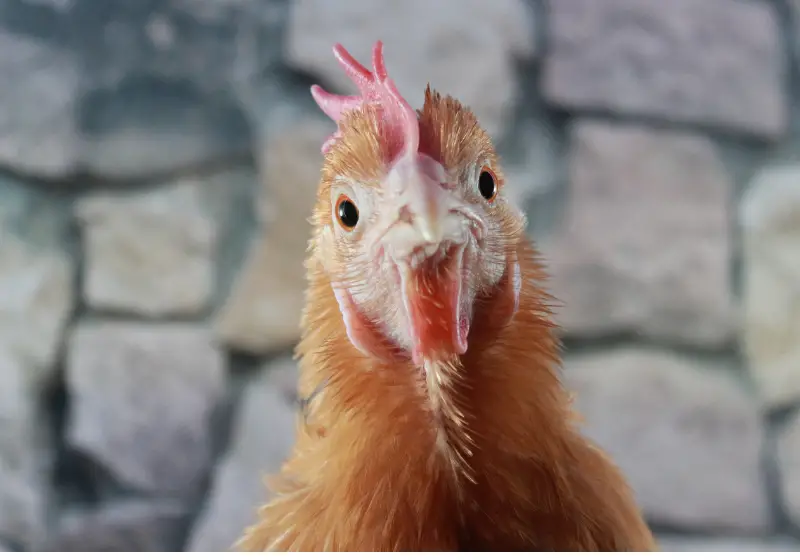
As you might already know, chickens are omnivorous creatures. This means they consume a diverse diet, consisting of both plants and animals. The primary sources of nutrition for chickens include protein, worms, insects, and various plant matter.
Some common insects that chickens devour are bugs, grasshoppers, beetles, and ants. These little critters are easy to catch and provide the necessary nutrients for chickens to thrive, particularly the protein-rich content that helps maintain and build strong muscles and feathers.
In their natural habitat, chickens can often be seen foraging for food, searching for worms and insects hidden under leaves, rocks, or in the soil. This behavior benefits the birds and the ecosystem, as they help control pests and keep the environment clean.
Snails are typically found in their favorites list among the various insects chickens consume. When chickens encounter snails of manageable size, they happily eat them, incorporating them into their already diverse diet. Snails supply important nutrients that chickens require and can be a tasty treat.
So, when considering chickens as omnivores, it’s crucial to remember that they thrive on a combination of plant-based food and animal sources. Fulfilling their dietary requirements ensures that the chickens stay healthy and continue growing.
Snails as a Source of Protein for Chickens
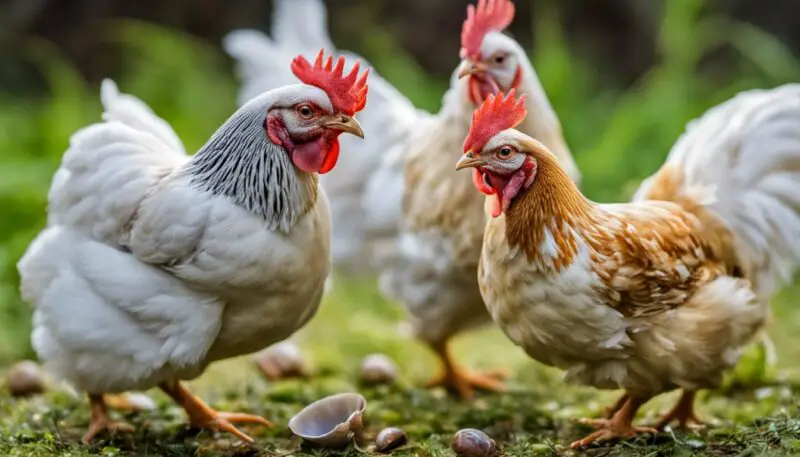
Snails can be a beneficial addition to your chickens’ diet. They are rich in protein and provide essential nutrients that chickens need for optimal health. Chickens will naturally eat snails they find in their environment, which are entirely safe to consume.
When chickens eat snails, they benefit from the protein content and the minerals found in their shells. The shells are a natural source of calcium, which is vital for strong eggshells and overall bone health. This combination of protein and minerals makes snails a nutritious and valuable snack for your flock.
Feeding snails to your chickens can also be a beneficial way to control the snail population in your garden. Chickens can help reduce the number of these pests that may otherwise damage your plants. However, you should be careful to ensure that the snails your chickens are eating have not been exposed to chemicals or pesticides, as these could harm your chickens.
Additionally, it is important to ensure proper balance in your chickens’ diet. Snails should not be the sole source of protein for your flock. Instead, they should be considered supplementary to a balanced and diverse diet that includes various other sources of protein and nutrients, such as grains and vegetables.
In summary, snails can be a valuable, natural, and safe source of protein and minerals for your chickens. Providing the occasional snail treat can contribute to a healthy, balanced diet that supports the well-being of your flock.
Safety of Eating Snails for Chickens

When it comes to feeding your chickens, you can generally feel confident in their safety. Snails are rich in protein and other beneficial nutrients for chickens. In fact, they are considered safe for chickens even when consumed in large amounts.
However, you should be aware of some potential risks associated with snails. One concern is the transmission of parasites, such as lungworms. Although the risk of parasite transmission from snails to chickens is relatively low, it is still important to monitor your chickens for any signs of respiratory illness or other health issues.
Another concern is using poison or toxic substances to control snail populations. If you use slug and snail poison or pellets in your garden, be careful to keep your chickens away from these areas. Snails feeding on poisonous substances could make them toxic for your chickens to eat, leading to serious health issues.
Furthermore, you should always ensure the snails your chickens consume aren’t carriers of rat lungworms. This parasite can cause various diseases in chickens, including respiratory illness. Checking for the presence of rat lungworms in snails can help minimize this risk.
In summary, while snails can be a nutritious and safe food option for your chickens, it’s essential to be aware of the risks involved. By considering these factors and taking necessary precautions, you can provide your chickens with a balanced diet that includes the occasional snail without jeopardizing their health.
Potential Hazards of Snails
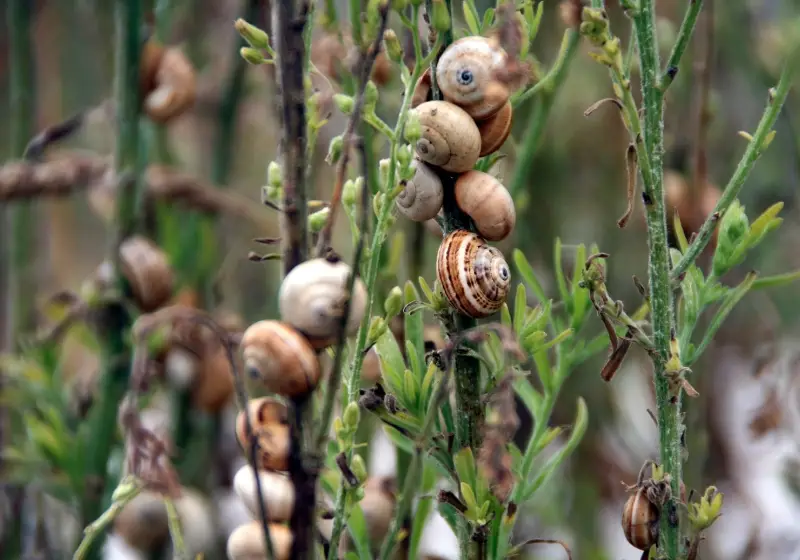
When it comes to your chickens eating snails, there are some potential hazards you should be aware of. One major concern is the risk of your chickens consuming snails that have ingested toxic substances such as slug pellets, snail pellets, or snail poison. These substances can harm your chickens if consumed indirectly through the snails.
To protect your chickens, be sure to use alternative methods to keep snails away from areas where your chickens roam. Some options include:
- Using copper tape: Snails are deterred by copper because it generates a small electrical charge when they come into contact with it. You can apply copper tape around the perimeter of your garden to keep snails at bay.
- Employing natural remedies: Crushed eggshells or nutshells work as natural barriers that snails have difficulty crossing. Spread these materials around the areas you want to protect from snails.
Another potential danger associated with snails is the risk of gapeworms. These parasites can be found in snails and may infect your chickens if they eat them. However, this risk is considered to be relatively low, and the benefits of chickens consuming snails, such as their high protein content, may outweigh the risks.
By being vigilant and employing safe methods to control snails, you can minimize these potential hazards and keep your chickens healthy while benefiting from their natural pest control abilities.
Watch this video: I Feed my 100+ Chickens with Live SNAILS!! Inside in my animals farm (FULL TOUR)
Role of Snails in a Chicken’s Diet
Snails can play an important role in a chicken’s diet, providing essential nutrients. When your chickens are free-range, they naturally seek out various food sources, including snails. These slimy creatures offer many benefits that contribute positively to your chicken’s overall health.
Snails are nutrient-rich, supplying essential vitamins and amino acids to your chickens. The consumption of snails provides your chickens with a boost of calcium, which is crucial in eggshell formation and maintaining bone health. Snails also contain a notable amount of magnesium, an essential mineral that aids in various bodily functions, including muscle and nerve function.
In addition to calcium and magnesium, snails provide other essential vitamins and minerals for your chickens. These vitamins are vital for your flock’s growth, development, and well-being.
Aside from the health benefits, snails allow your chickens to engage in natural foraging behaviors. The act of hunting and pecking at snails mimics their instincts in the wild. This natural exercise helps keep your chickens physically and mentally stimulated.
However, you should be careful not to expose your chickens to potentially harmful substances. Be cautious about using toxic chemicals, like pesticides, in your garden, as they could accumulate in the snails and affect your chickens’ health.
In conclusion, snails can benefit a chicken’s diet while encouraging their foraging skills. Their rich nutrient profile contributes positively to your flock’s health, providing essential elements such as calcium, magnesium, and other vitamins and minerals your chickens need to thrive.
Foraging and Feeding Habits
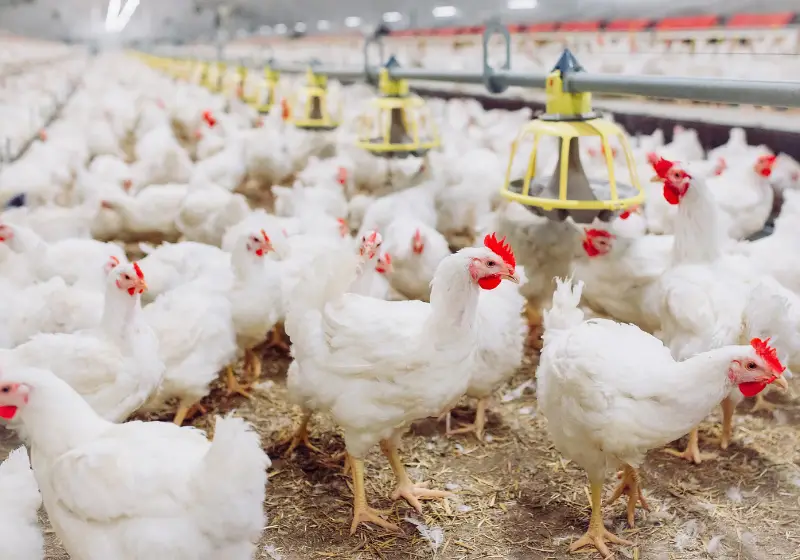
Regarding your backyard chickens, their foraging and feeding habits are crucial in maintaining their health and well-being. Foraging allows chickens to explore their environment and find diverse food sources, such as snails.
In a garden setting, chickens can easily encounter snails, as these creatures tend to dwell in damp, cool areas typically found at ground level. Snails can be found under rocks, logs, and leaf litter, making them quite accessible to your foraging chickens. In fact, snails are a safe food source for chickens, providing them with a nutritious and protein-rich treat.
While snails may be small and well-protected within their shells, chickens do not have any issues getting to the tasty morsel inside. They use their beaks to crack open the snail shells and consume the soft-bodied snail. This process is efficient and effective in ensuring your chickens gain the necessary nutrients from this food source.
As chickens forage in your garden for snails, they may also naturally consume grit. Grit is essential for their digestion, helping to break down food in their gizzards. This makes grit consumption a bonus to their foraging adventures.
It’s important to remember that while snails are a nutritious food source, they should not make up the entirety of your chickens’ diet. Ensure a balanced diet with a mix of chicken feed, fruits, vegetables, and treats like snails for your backyard chickens to stay healthy and strong.
Snails and Poultry Health
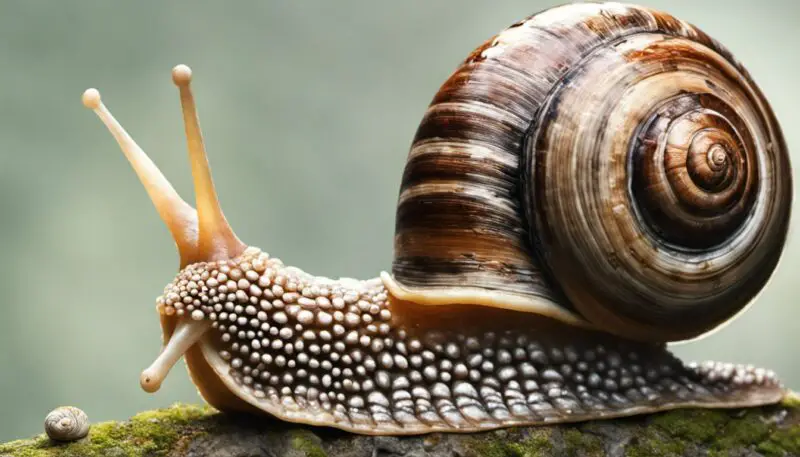
Snails can be a nutritious addition to your chickens’ diet, as they are rich in protein and amino acids essential for muscle growth and proper organ function in poultry sources. Feeding snails found in your garden can provide a natural and healthy food source for your birds.
However, it’s important to be cautious when feeding your chickens snails because they can carry parasites that may affect your birds’ health. One such parasite is the gapeworm, which can cause respiratory issues in chickens source. Gapeworms are acquired by consuming intermediate hosts like snails. When chickens get infected with tapeworms, they can experience difficulty breathing, which may lead to suffocation.
In addition to gapeworms, snails can also carry lungworms, including the rat lungworm. These parasites can pose a risk to your chickens’ health. Lungworms can lead to respiratory illnesses in your birds and, in severe cases, can be fatal.
To minimize the risk of diseases and parasites, ensure that the snails you feed your chickens do not have access to substances or environments that might harm your birds, such as slug pellets or poisons sources. Also, make sure to keep your chickens’ living area clean and provide them with a proper diet to help support their immune system.
In conclusion, while snails can offer valuable nutrients for your chickens, it is important to be aware of the potential risks and take necessary precautions to avoid any potential health issues. Maintaining a clean environment, providing a well-balanced diet, and monitoring your chickens for signs of respiratory illness can help ensure that you take good care of your birds while offering them a diverse and nutritious diet.
Feeding Snails to Chickens: Other Considerations
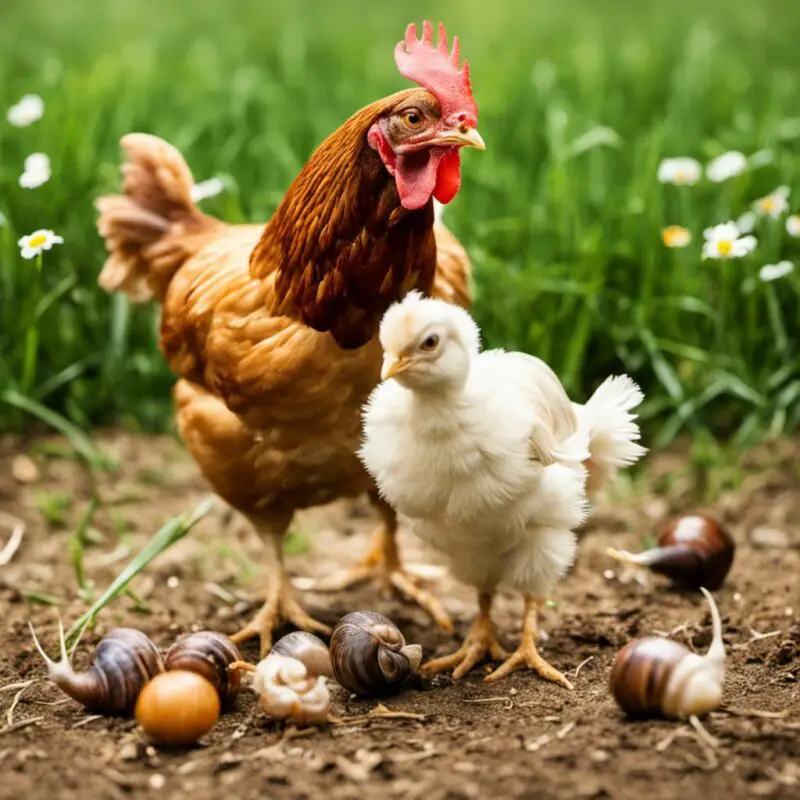
When feeding snails to your chickens, it is essential to consider the environment in which they were found. If you keep your chickens in a pen or coop, always ensure that the area is free from pesticides, as snails may have consumed toxic substances that can harm your chickens and potentially affect their egg production 1.
Laying hens need a balanced diet to maintain good health and provide high-quality eggs. While snails can be a good source of proteins, it is crucial to offer a variety of foods, including fruits, vegetables, and high-quality feed, to ensure they receive essential nutrients, such as magnesium, needed for muscle and nerve function 2.
Hydration is another vital aspect of maintaining healthy chickens. Besides providing clean water to your chickens, monitoring their water intake after feeding them snails is also necessary. Snails are high in moisture and can partially quench your chickens’ thirst, so it may be valuable to adjust their water intake accordingly.
Remember that if you notice any unusual behavior, reduced egg production, or other health concerns in your chickens after feeding them snails, consult with a veterinarian for proper guidance.
Snails: Friend or Foe in Chicken Farms
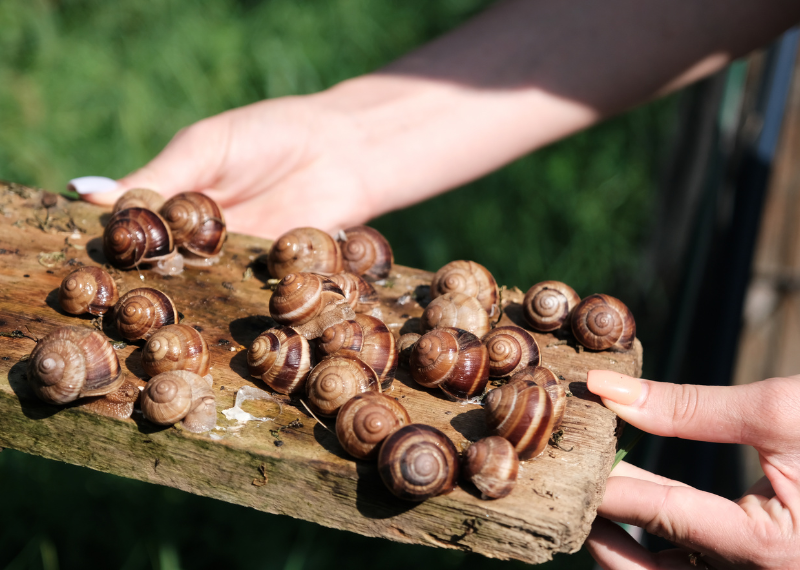
As a chicken farmer, you might wonder whether snails benefit or harm your chickens. Snails can be considered both friends and foes in chicken farms, depending on the specific circumstances.
On the positive side, snails are natural garden pests that chickens love to eat. They can contribute to pest control on your farm and provide your chickens with a nutritious source of protein. Allowing your chickens to eat snails reduces the need for artificial pesticides, which is a plus for organic farming.
However, there is a potential downside when your chickens consume snails. Snails can carry gapeworms, which can infect your chickens and lead to respiratory distress. Additionally, if snails have been in contact with poison or slug pellets, consuming snails would pose a risk to your chickens’ health, as stated by Pentagon Pets.
To keep your farm safe and productive, consider implementing snail management strategies, such as:
- Regularly inspect your farm for snails and remove them, particularly in areas with a high risk of poison or pellet exposure.
- Create barriers around your garden or crop area with materials like copper tape, crushed eggshells, or nutshells to deter snails and protect your plants.
Keep an eye on other pests like mice, which may steal your chicken feed and threaten your farm’s hygiene. Employing traps and keeping your farm clean can help in controlling mice infestations.
In summary, snails can be both friends and foes in chicken farms, providing a natural source of pest control and nutrition for your chickens and potential health risks. You can keep your chicken farm safe and productive by being vigilant and implementing proper management strategies.
In a Nutshell: Are Snails Safe for Chickens?
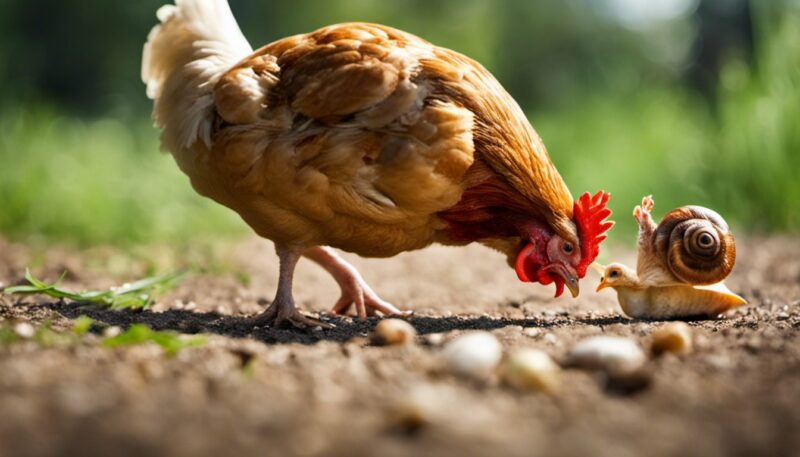
As you raise your chickens, you may wonder if they can consume snails. The short answer is yes, chickens can eat snails and even slugs. Snails are a protein-rich food source and can provide other nutrients that chickens need. Additionally, snail shells are a great source of calcium, which can be beneficial for laying hens.
However, before you start giving your chickens snails, consider the seasonal availability. Snails are unavailable year-round, so this should be viewed as an occasional treat for your chickens rather than a staple food source. In certain parts of the world, snails hibernate during cold months, limiting their availability as a food source for your chickens.
Safety is another important factor when it comes to feeding snails to your chickens. Ensure the snails are not exposed to harmful substances like slug pellets or poison. Also, parasites might reside in snails, posing potential risks to your chickens. In such cases, cooking the snails before feeding them to your chickens can reduce their chance of ingesting the parasites.
When considering preparation, chickens usually remove the snails from their shells and eat them. The snail shells can be tough for some chickens, especially chicks, so remember this when offering snails as a treat.
On your farm, incorporating snails into your chickens’ diet can be a viable option as long as you ensure their safety and take note of seasonal availability. By practicing proper preparation and being mindful of potential risks, snails can provide an occasional nutrient-rich treat for your chickens.
Conclusion: Do Chickens Eat Snails
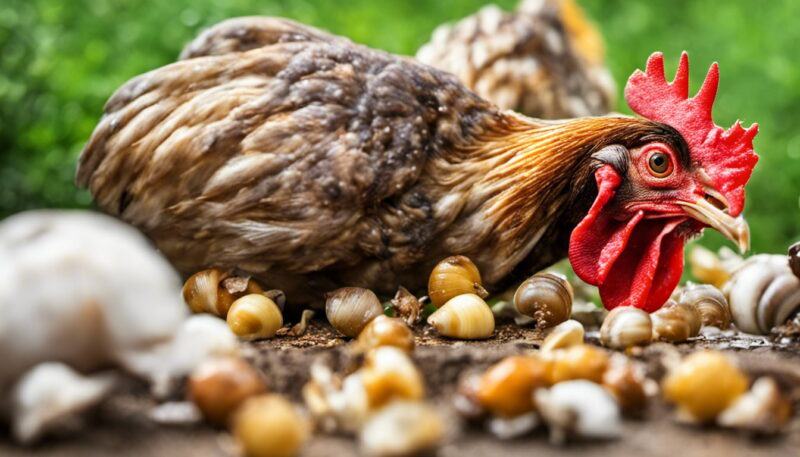
Chickens eat snails, which can be a beneficial part of their diet. Snails are rich in protein and provide essential amino acids that contribute to the overall health of your chickens, including muscle and feather growth. Including snails in their diet can be an excellent way to diversify their protein sources, including mealworms and earthworms.
When it comes to egg production, a balanced diet is crucial for your chickens. Offering a variety of protein sources alongside vegetation ensures the nutritional needs of your flock are met. Snail shells are a great source of calcium, which is necessary for strong eggshells. Just be cautious about the snails’ exposure to any slug pellets or poison, as this can harm your chickens.
In addition to protein, snails also contain moisture, which can help keep your flock hydrated, especially during warmer months. While snails are not a staple food for chickens, they can make for a delicious gourmet treat that provides essential nutrients.
So, next time you find snails in your garden, you can consider offering them as a nutritious and tasty snack for your chickens. With a confident and knowledgeable approach, you can ensure a well-rounded and balanced diet for your flock that includes snails as part of their protein sources. Just be mindful of potential hazards such as contaminated snails, and your chickens will continue to thrive.
Frequently Asked Questions
Do snails pose any health risks to chickens?
While snails can be a tasty treat for your chickens, there are some potential health risks to be aware of. Snails can carry gapeworms, infecting your chickens if they consume them. However, proper worming measures can help lower this risk (source).
Are snails a good source of nutrients for chickens?
Yes, snails can be a beneficial source of nutrients for your chickens. Snails are rich in protein, amino acids, and calcium, all of which contribute to the overall health and well-being of your chickens (source).
How can chickens help control a snail population?
Chickens have a natural appetite for snails and will eagerly consume them when available. This can help you control a snail population in your garden or backyard, as the chickens will actively forage for snails to eat.
What precautions should be taken if chickens eat snails?
When allowing your chickens to eat snails, you should take some precautions to protect their health. Ensure that the snails have not been exposed to slug pellets or poison, as this can pose a risk to your chickens (source). Regular worming of your chickens is also important to decrease the risk of gapeworm infections from snail consumption.
Do chickens have a preference for certain types of snails?
There isn’t specific information available on whether chickens prefer certain types of snails, but they generally enjoy consuming snails with soft bodies that are easy to peck at and eat (source).
Can snail consumption affect egg production in chickens?
Snail consumption may positively impact your chickens’ egg production, thanks to the calcium found in snail shells. Calcium is essential for producing healthy and strong eggshells, so consumption of snail might improve egg quality. However, there are no specific studies or evidence to confirm this effect.

